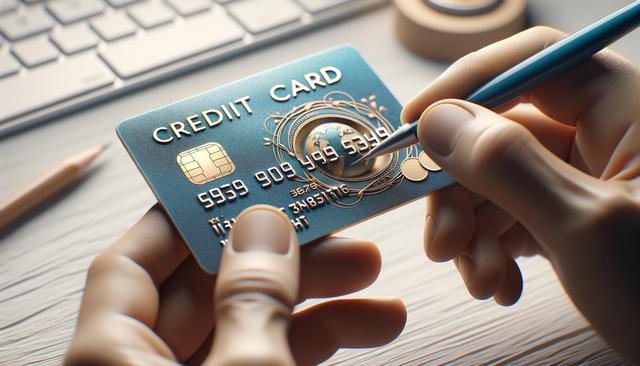What Is a Credit Card and How Does It Work?
A credit card is a financial tool that allows consumers to borrow money from a credit issuer up to a certain limit, commonly referred to as a credit limit. When you use a credit card to make a purchase, you’re essentially taking out a short-term loan. At the end of each billing cycle, you receive a statement detailing your transactions and the total amount owed. You can choose to pay the full balance, a minimum amount, or any amount in between. If you carry a balance, interest charges may apply, depending on the card’s annual percentage rate (APR).
The convenience of credit cards lies in their instant purchasing power and the ability to spread out repayment. However, understanding terms like grace period, interest rate, and credit limit is crucial. For example, most credit cards offer a grace period during which you can pay off your full balance without incurring interest. Skipping payments or exceeding your limit can negatively affect your credit score and lead to late fees or increased interest rates.
Types of Credit Cards Available
There are several types of credit cards designed to meet different financial needs and spending habits. The choice depends largely on your credit profile, lifestyle, and goals. Here are some common types:
- Standard Credit Cards: These offer basic features such as a revolving line of credit and are suitable for general use.
- Reward Credit Cards: These provide points, miles, or cashback on eligible purchases, often appealing to frequent shoppers or travelers.
- Secured Credit Cards: Backed by a cash deposit, these are ideal for building or rebuilding credit history.
- Business Credit Cards: Tailored for business expenses, they often come with tools for managing company finances.
- Student Credit Cards: Designed for college students with limited or no credit history, often featuring lower limits and basic rewards.
Understanding the purpose of each type helps you choose a card that aligns with your financial objectives. For example, if you’re aiming to earn rewards on daily spending, a reward card might be more appropriate than a secured one.
Key Features to Consider Before Applying
When evaluating credit cards, several features should be examined carefully to ensure the card suits your usage patterns and financial goals. These features include:
- Annual Percentage Rate (APR): This represents the interest rate you’ll pay if you carry a balance. Lower APRs are generally more favorable.
- Fees: Common fees include annual fees, late payment fees, foreign transaction fees, and balance transfer fees.
- Credit Limit: This is the maximum amount you can borrow. A higher limit offers more flexibility but requires responsible usage.
- Rewards and Perks: Consider if the card offers cashback, travel points, or other incentives that match your spending habits.
- Introductory Offers: Some cards offer 0% APR for an initial period or signup bonuses after meeting spending thresholds.
Balancing these features with your financial situation can help prevent unnecessary costs and make your credit card experience more beneficial.
Credit Card Usage and Financial Responsibility
Using a credit card responsibly is essential to maintaining good financial health. Misuse can lead to debt accumulation, damaged credit scores, and significant interest payments. On the other hand, smart usage can help build credit history and improve your credit score over time.
Here are a few tips for responsible credit card use:
- Pay your balance in full each month to avoid interest charges.
- Keep your credit utilization ratio below 30% to maintain a healthy credit score.
- Make payments on time to avoid late fees and negative marks on your credit report.
- Monitor your monthly statements for unauthorized charges or errors.
- Use the rewards and benefits strategically to maximize value without overspending.
By following these practices, you can take advantage of the convenience and rewards that credit cards offer while minimizing the financial risks.
Building Credit with Credit Cards
One of the most important benefits of using a credit card is the opportunity to build or improve your credit score. Credit bureaus look at factors like payment history, credit utilization, length of credit history, and new credit inquiries. Credit cards play a significant role in several of these areas.
For individuals new to credit, starting with a secured or student credit card can be an effective way to establish a positive credit history. Over time, responsible use can lead to higher credit limits and access to cards with more favorable terms and rewards. Maintaining a long-standing account in good standing also enhances your credit profile.
When used wisely, credit cards can be a stepping stone to other financial opportunities such as auto loans, mortgages, or favorable insurance rates. However, it’s important to be mindful of how multiple applications can affect your credit score and to avoid taking on more credit than you can manage.
Conclusion: Choosing a Credit Card That Fits Your Needs
Selecting a credit card involves more than just picking the first offer you receive. By understanding how credit cards work, evaluating different types and features, and using them responsibly, you can make informed choices that support your financial goals. Whether you’re looking to build credit, earn rewards, or manage expenses, taking the time to assess your options can lead to a more secure and beneficial credit experience. Always compare terms and consider how a specific card fits into your lifestyle and long-term plans before applying.




Leave a Reply